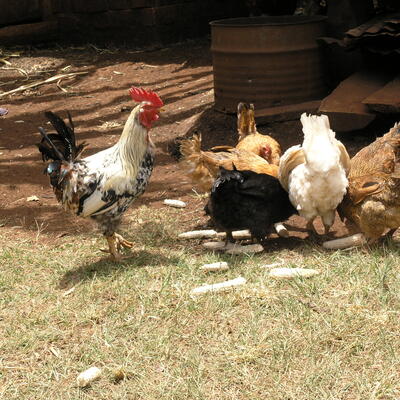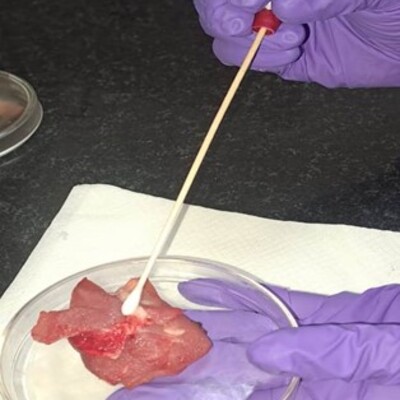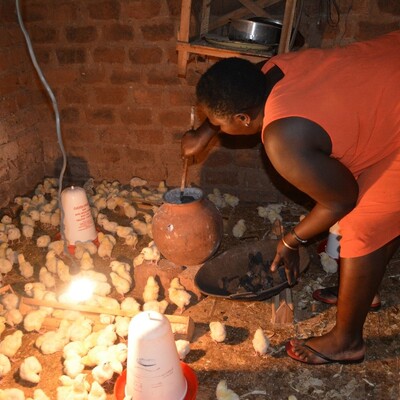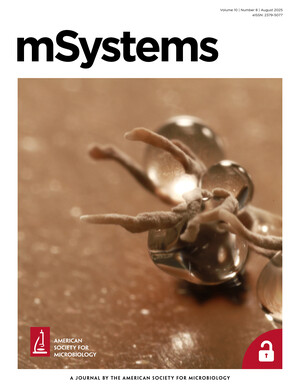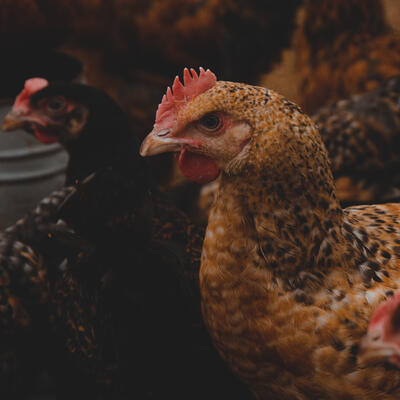

Burkina Faso sets up One Health community platforms to improve food security and public health in rural areas
Poultry diseases pose a significant challenge to productivity and food safety in Burkina Faso. By implementing strategies to improve farming and market practices, providing education and training, and testing business models that strengthen connections within the value chain, the poultry sector can become safer and more productive.
The ‘Poultry losses and One Health (POLOH): Reducing losses and zoonotic risks along the poultry value chain through a One Health approach’ project aims to enhance household food security and safety and improve the livelihoods of smallholder poultry producers, through culturally and economically suitable, gender-sensitive interventions. This will ultimately reduce flock mortality, pathogen occurrence, and human health risks.
Poultry is an important source of income and nutrition, and is often used to maintain social connections among rural households in low-income countries like Burkina Faso. In recent decades, there has been a growing demand for local poultry in the country’s urban and export markets, leading to increased poultry farming in peri-urban areas and along major roads.
Poultry meat and eggs are rich in high-quality protein and micronutrients, making them essential for enhancing the nutritional value of both rural and urban diets, especially for mothers and children under five years of age. However, traditional poultry farming methods may pose health and nutrition risks as poultry scavenging around the yard can expose children to livestock‐related pathogens, including occupational zoonoses such as avian influenza, salmonella and Campylobacter.
Despite the rise in poultry production and increased demand, there has not been a profound transformation of the production system. There has been little adoption of improved rearing techniques and infrastructure, except in households supported by development programs. Vaccination coverage and habitat improvement remain very limited.
Given the potential risks of traditional production systems, it is clear that improvements to poultry management, husbandry and hygiene practices are crucial to secure smallholder livelihoods and reduce exposure to foodborne pathogens. This underscores the need for a comprehensive One Health (OH) approach that simultaneously maximizes animal and human welfare and their interaction with the farm environment and improves production.
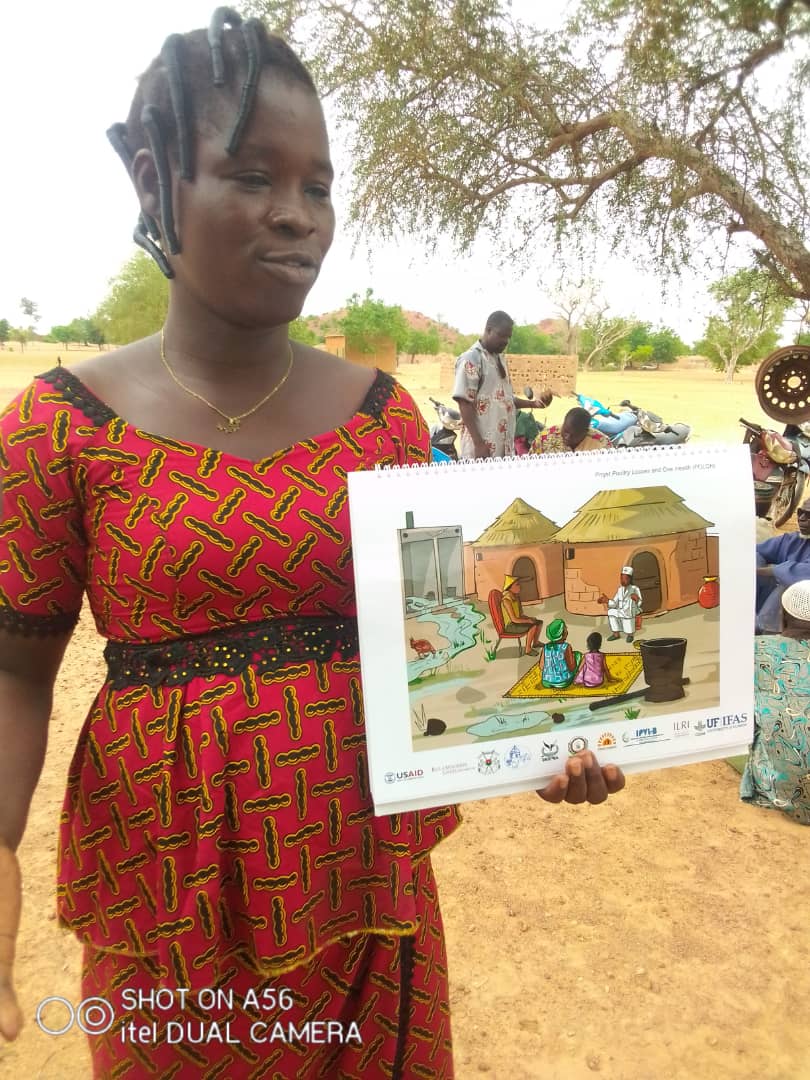
The intervention
The intervention includes the delivery of high-quality chicken vaccines through a business model that incorporates men and women community vaccinators in each village. Training of the vaccinators built capacity and raised community awareness about the benefits of vaccination. Communities were encouraged to organize more training sessions through their cooperatives.
In addition, the project used an integrated, inclusive approach building on the OH framework to develop a context-specific One Health Behavioural Change Communication package on household-level biosecurity and hygiene for chicken producers. This was delivered through a community OH committee made up of village vaccinators, community health workers and environmental agents.
Eight high-level experts in animal, human, and environmental health, referred to as OH poultry champions, are key players in this project. These champions, who come from both the government and local development organizations, are engaged in the co-creation of innovative, integrated educational and training packages. Their expertise and collaboration are instrumental in ensuring the project’s success.
These training packages use a holistic approach that promotes biosecurity, improved management, poultry health and welfare, and the production of high-quality poultry products. The training is intended for community health workers to raise farmers’ awareness of farm practices that favour the transmission of pathogens between poultry and household members.
In each of the 10 project implementation villages, a team of four community members was created: two village vaccinators (one female and one male), one community health worker and an environment agent called a forest guard. The team’s role is to deliver a OH training package to the community.
Co-deployment of OH behavioural change communication package for improvements in poultry management, husbandry, and hygiene practices will reduce mortality rates and decrease the exposure of women and children to foodborne pathogens in poultry products and the farm environment. The OH approach also offers insights into how gender dynamics may affect women and girls in poultry keeping across human, animal and environmental health and help shape a gender-responsive system.
You may also like
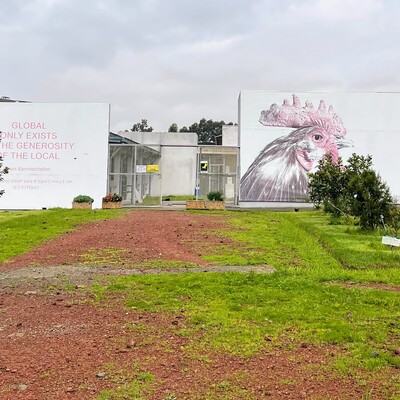
Impact
ILRI-CGIAR poultry research facility: A research and development hub open to the global scientific community
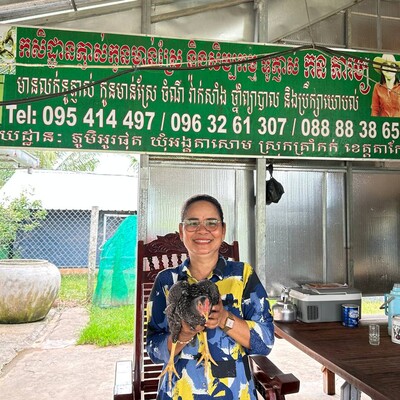
ILRI News
Improved indigenous chicken project boosting food security and livelihoods in Takeo Province, Cambodia
Related Publications

Patterns and factors influencing antibiotic use among poultry farmers in Thai Nguyen province, Vietnam
- Kemunto, Naomi P.
- Sinh Dang-Xuan
- Yen Luu-Thi-Hai
- Huyen Nguyen-Xuan
- Ibayi, Eugine L.
- Nielsen, S.S.
- Hung Nguyen-Viet
- Moodley, Arshnee
- Muloi, Dishon M.
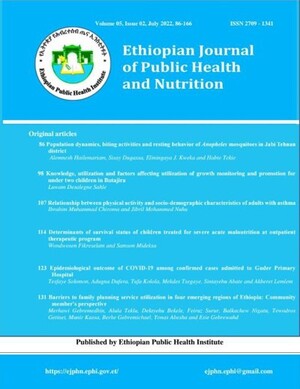
Integrating poultry and nutrition education to improve dietary diversity among rural Kenyan women
- Geremew, Kumlachew
- Chelangat, M.S.
- Ouko, O.
- Yemane, Tsion
- Ouko, V.O.
- Odiwour, A.
- Alaru, P.A.
- Mbuku, S.
- Dessie, Tadelle
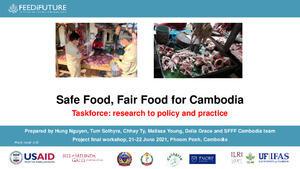
Asian Chicken Genetic Gains (AsCGG): Genetic innovations for more climate-resilient breeds—Vietnam experience
- Cuc, N.T.K.
- Huyen, N.T.
- Esatu, Wondmeneh
- Dinh, N.C.
- Son, P.V.
- Quyen, N.T.L.
- Thong, T.T.
- Unger, Fred
- Hoa, H.H.
- Dessie, Tadelle

Analysis of antibiotic use, biosecurity and mortality in semi-intensive broiler farms in Kenya
- Kemunto, Naomi P.
- Muloi, Dishon M.
- Ibayi, Eugine L.
- Njaramba, Jane K.
- Hoffmann, Vivian
- Murphy, Mike
- Nielsen, S.S.
- Moodley, Arshnee
Related Projects
